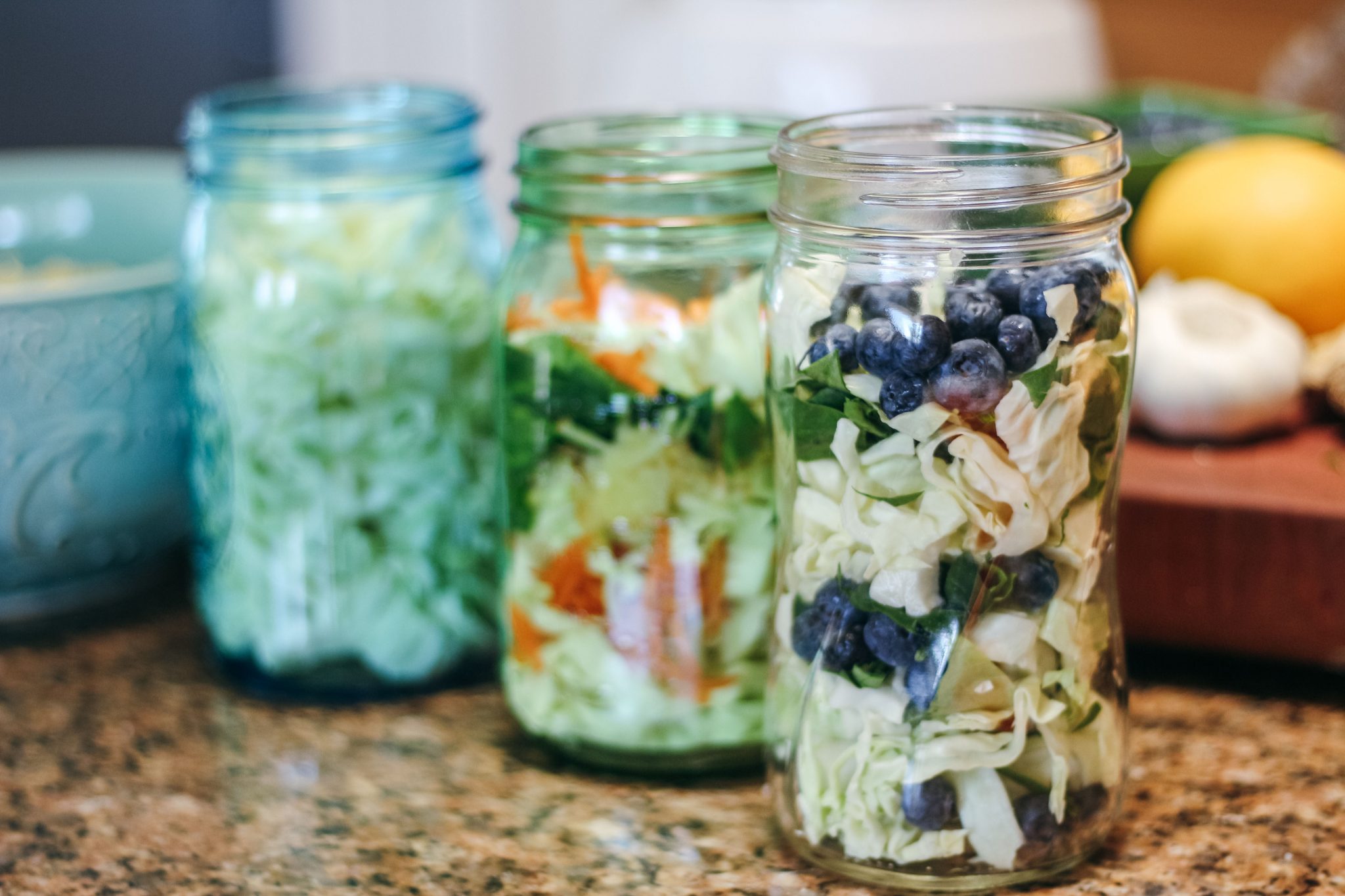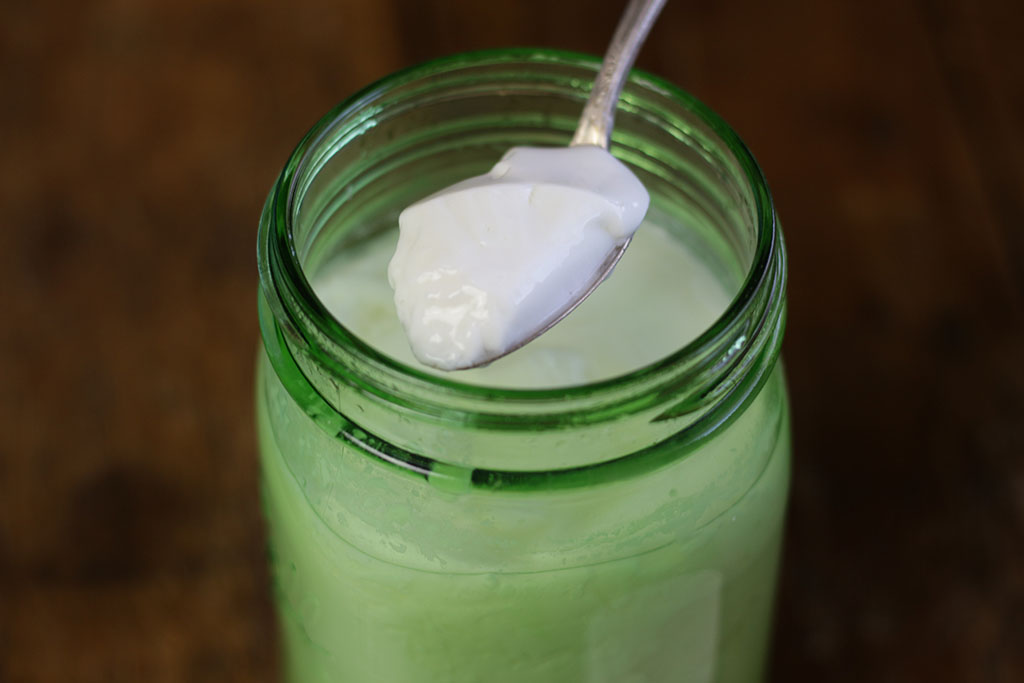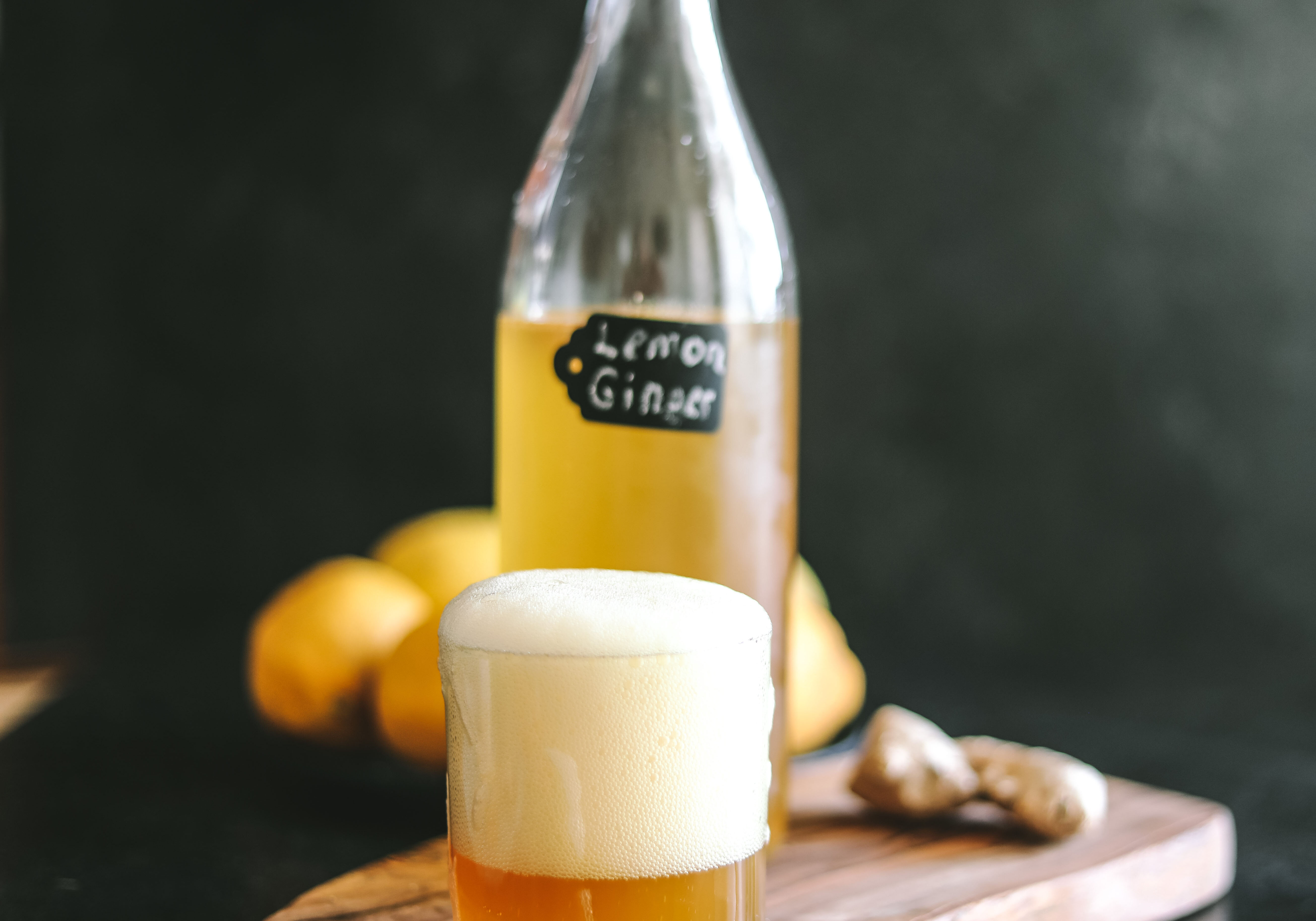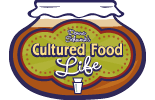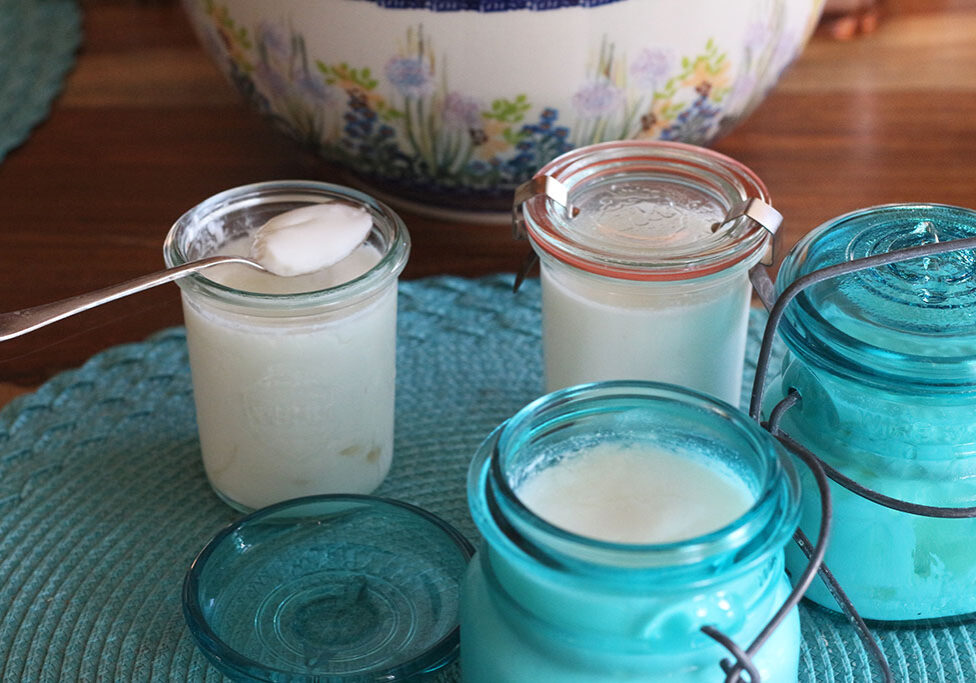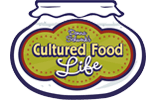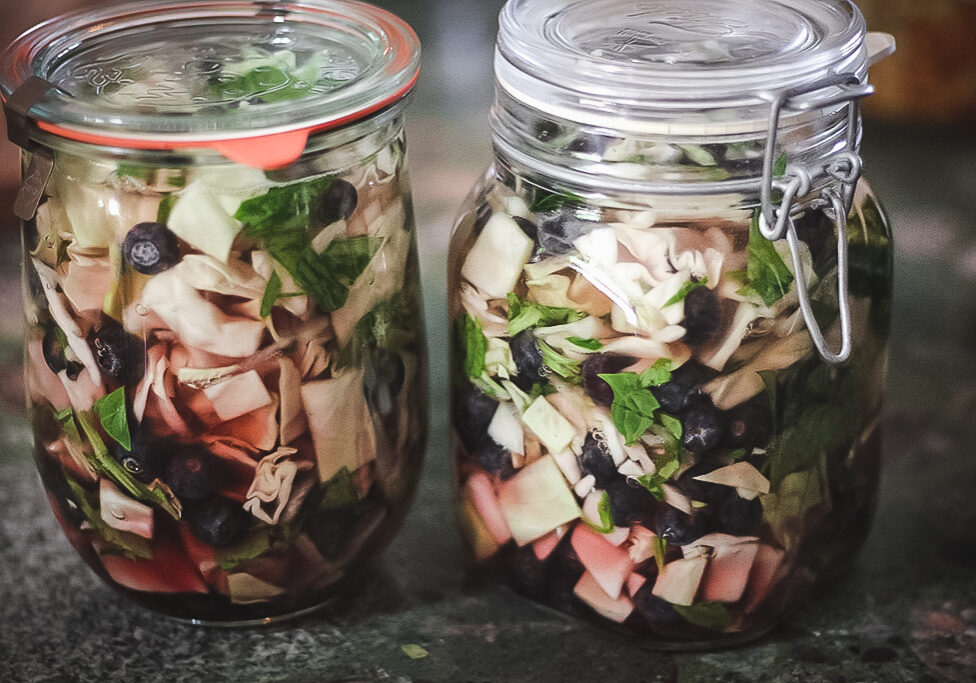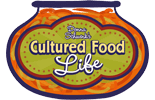
IBD: Crohn’s, Ulcers, & Fermented Foods
inflammatory bowel disease
The Fermented Foods That Help
I've seen cultured vegetables, kombucha, and kefir help with so many gastrointestinal disorders, and I've even witnessed firsthand my son healing from an ulcer that was causing him severe pain every time he ate. Kombucha and kefir have been found to help the healing process with those who have ulcers. The special probiotic bacteria and yeasts in kombucha protect the lining of the gut by reducing the acids that damage the mucous membrane. It was found that this works as well as the prescription drug Prilosec in healing stomach ulcers.[1] Cultured vegetables play a part in healing ulcers as well. Vitamin U, which is not actually a vitamin but a compound called S-methylmethionine, is abundant in cultured cabbage and its juices. It has been shown to successfully treat ulcerative colitis, acid reflux, and peptic ulcers.[2,3]Kefir was something my son consumed every morning, and with this trilogy combination, it helped him heal in about two months. In addition to adding the probiotic foods, he did eliminate any acidic foods that were aggravating his condition.
Inflammatory bowel disease (IBD)
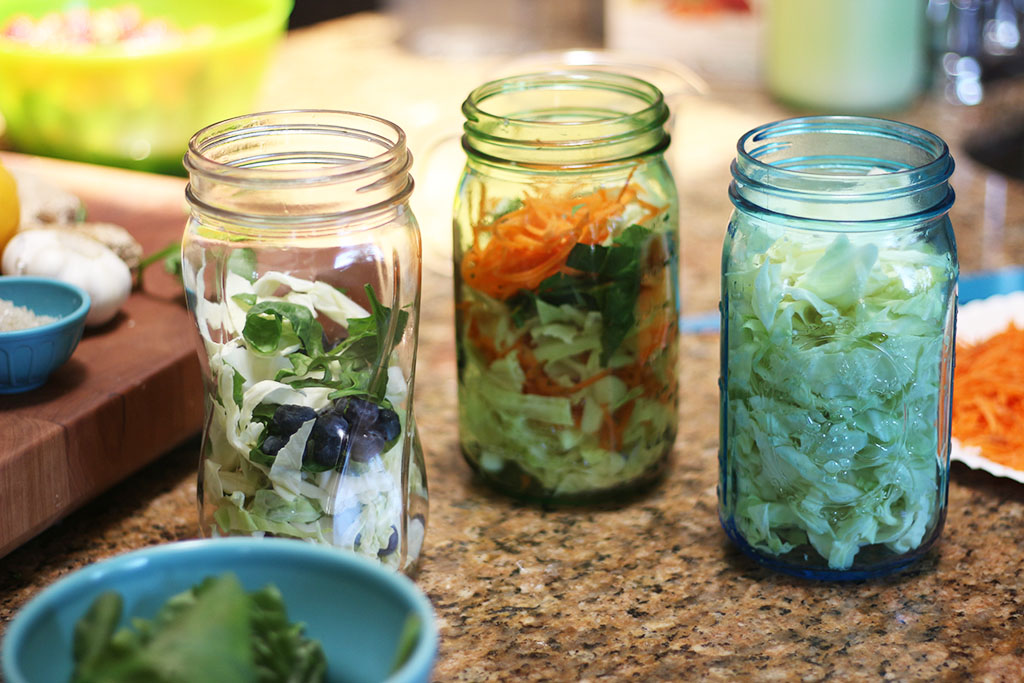
Symptoms of dysbiosis can include:
- Digestive discomforts such as belching, bloating, the urgency to go, constipation, cramping, diarrhea, food sensitivities, foul-smelling stools, and irritable bowel syndrome (IBS)
- Acne
- Anxiety
- Fatigue
- Depression
- Skin conditions
Our digestive system forms one of the barriers between the outside world and our internal structures. Elie Metchnikoff won a Nobel Prize in 1908 for identifying a link between the digestive system and the immune system. His work demonstrates that by manipulating our intestinal microbiome with friendly bacteria we can enhance our health and boost our immune system's healing power.
Kefir Trial and Crohn's Disease
A clinical trial in 2018 showed that consuming kefir may help with these symptoms in people with Crohn’s disease and may help to reduce inflammation. Patients with Crohn's disease were selected randomly to receive the following treatment: 400 mL of kefir twice a day for four weeks. The results determined that in patients using kefir, there was a statistically significant improvement in abdominal pain, bloating, and quality of life when compared with the control group in the last 2 weeks. A statistically significant difference was found in terms of bloating and feeling good when the symptom log data of the first 2 weeks and the last 2 weeks of patients with Crohn's disease were examined. [4]
Jordan Rubin, founder of Garden Of Life, had serious and debilitating Crohn's disease. In his book, "The Raw Truth," he said he drank several quarts of kefir a day and took other probiotic foods and supplements to heal from this dreaded disease.
Fermented Vegetables as a Potential Treatment for IBS
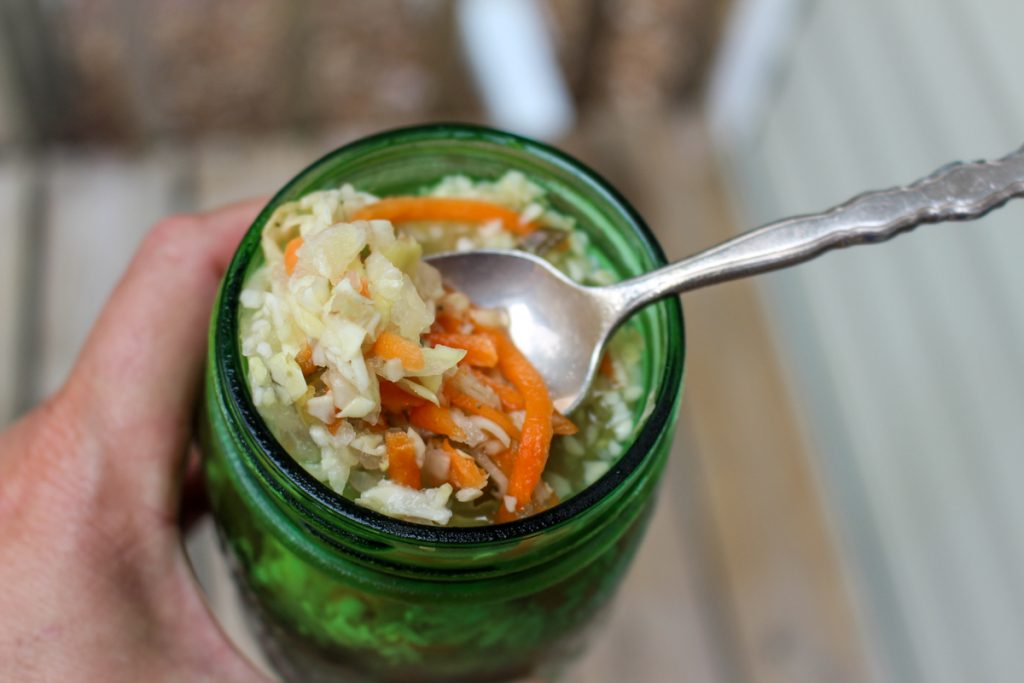
When harmful bacteria overtake the gut, it can lead to ongoing issues like chronic diarrhea, especially in cases of post-infectious IBS. After an infection from bacteria like E. coli, Salmonella, or shigella, some people continue to experience discomfort because these bacteria can linger or disrupt the gut’s ecosystem. This imbalance can make it harder for the body to heal. That’s why restoring balance to the gut microbiota, often through fermented foods rich in beneficial bacteria, can be so helpful in relieving these symptoms. By nurturing your gut with probiotics and healthy fermented foods, you support your body’s natural defense systems and help it regain balance.
Research on fermented vegetables for irritable bowel syndrome suggests that fermented vegetables may offer therapeutic benefits for managing IBS symptoms. Here’s what we’ve learned. [5]
- Probiotic Benefits: Fermented vegetables like sauerkraut and kimchi are packed with beneficial bacteria, or probiotics, that work wonders for your gut. For people with IBS, who often struggle with an imbalanced gut (also known as dysbiosis), these probiotics help restore balance and harmony to the microbiome.
- Easing IBS Symptoms: Regularly enjoying fermented vegetables has been shown to improve common IBS symptoms like bloating, abdominal pain, and irregular bowel movements. The combination of probiotics and powerful bioactive compounds found in these foods helps reduce inflammation and supports smoother digestion.
- Restoring Gut Health: Fermented veggies don’t just provide relief—they actually help restore a healthy gut microbiome. This is key in supporting digestion, reducing gut permeability, and tackling some of the root causes of IBS symptoms. By feeding your body these healing, probiotic-rich foods, you’re giving your gut what it needs to thrive and find balance again.
Prebiotics and IBD
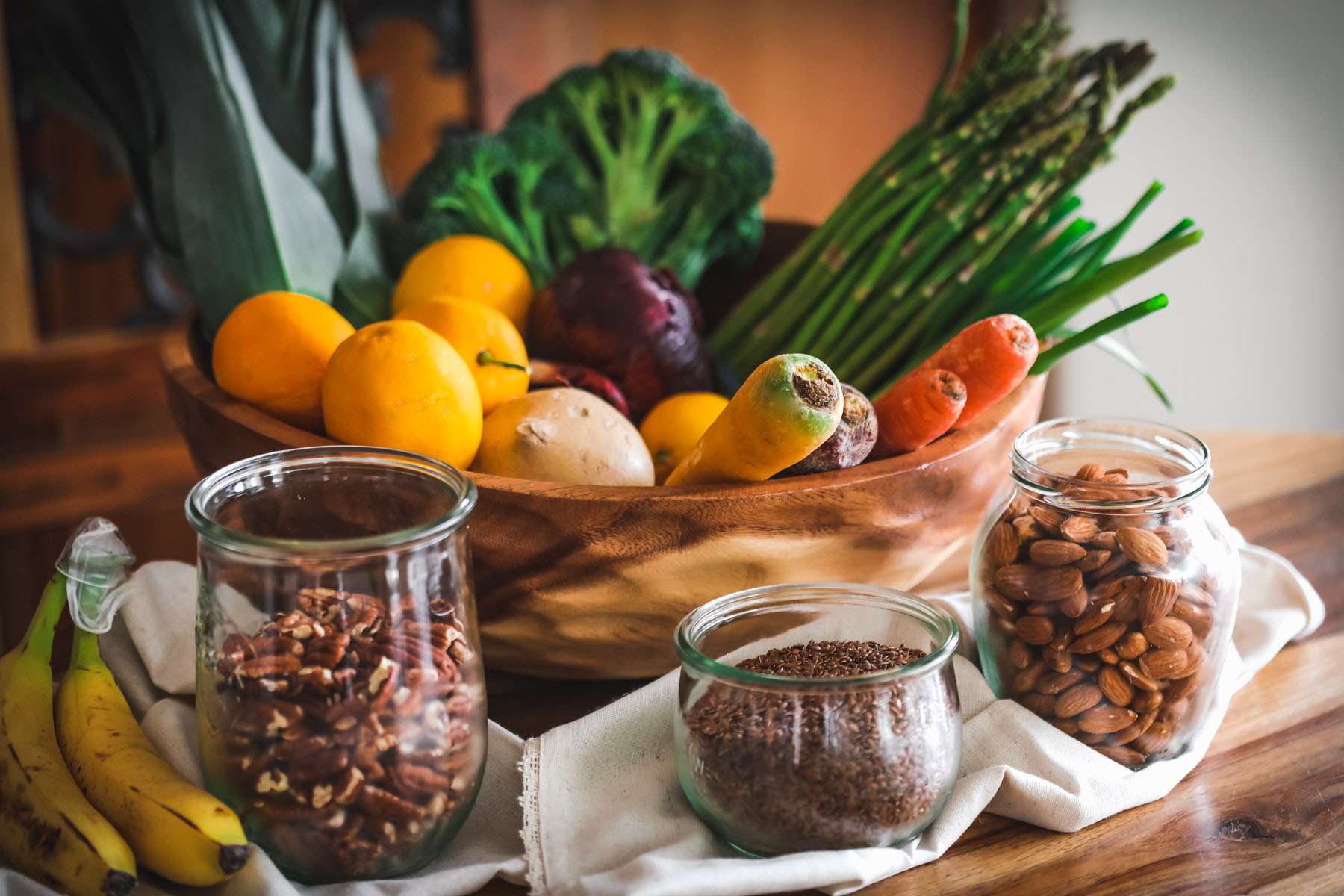
William R. DePaolo, PhD, the director of the Center for Microbiome Sciences and Therapeutics at the University of Washington School of Medicine in Seattle says, “If you want to colonize and grow something, you plant seeds. Those seeds would be the probiotics." Prebiotics, in contrast, "are the fertilizer you put on that garden," says Dr. DePaolo. "They help healthy bacteria grow and thrive and maintain a stable population in your gut."
He goes on to say, "People with an IBD like ulcerative colitis are more likely to have an out-of-balance microbiome, a condition known as dysbiosis. This may contribute to disease activity in UC because of the deficiency of compounds produced by healthy bacteria called short-chain fatty acids (SCFAs). Short-chain fatty acids are one of the major molecules that regulate inflammation. They do this by enhancing the effects of a type of immune system cell — known as a regulatory T cell — that helps regulate other pro-inflammatory T cells."
I've written several articles about the importance of SCFAs and prebiotics. I feel that nothing is more important than eating your fruits and veggies to control inflammation throughout the whole body and learning about the trillions of microbes that help you with IBD and a myriad of other health issues. If you have IBD, then learn about what's happening in your body that is creating this disease, and the many ways your trillions of microbes can assist you in finding a new balance and wellness. Wellness is your birthright. Claim it and focus on it and find your way to wellness like never before. Then you can look back and be thankful for the pain that brought you here. You are a miraculous creation that is designed to keep you well, you've just forgotten how it all works. It starts with what you put in your mouth. Check out some of my favorite recipes below. They could make all the difference.
Recipes for Healing IBD
Listen To My Podcast
In this episode, we're diving deep into the world of inflammatory bowel disease (IBD), including Crohn’s and ulcers, and how fermented foods can be a powerful ally in healing and recovery. I'll share how cultured vegetables, kombucha, and kefir have transformed lives—including my own son's—by easing symptoms, restoring gut health, and reducing inflammation. From the powerful probiotic bacteria in kombucha to the healing compounds in cultured cabbage, you'll discover the science and stories behind these incredible foods and how they can help you reclaim your gut health and wellness naturally. Tune in for recipes, tips, and everything you need to start your own healing journey!
References:
- Cheney, S.H. Waxler, and I.J. Miller, “Vitamin U Therapy of Peptic Ulcer; Experience at San Quentin Prison,” California Medicine 84, no. 1 (January 1956): 39-42: abstract at www.ncbi.nlm.nih.gov/pubmed/13276831
- G. Cheney, “Rapid Healing of Peptic Ulcers in Patients Receiving Fresh Cabbage Juice,” California Medicine 70, no. 1 (January 1949): 10-15: abstract at www.ncbi.nlm.nih.gov/pubmed/18104715.
- S. Elmståhl, U. Svensson, and G. Berglund, “Fermented Milk Products Are Associated to Ulcer Disease. Results from a Cross-Sectional Population Study,” European Journal of Clinical Nutrition 52, no. 9 (September 1998): 668–74: abstract at www.ncbi.nlm.nih.gov/pubmed/9756124.
- https://www.ncbi.nlm.nih.gov/pmc/articles/PMC6428516/
- https://pmc.ncbi.nlm.nih.gov/articles/PMC10111609/
Are you on the list?
Sign up today and I'll send you my free Getting Started Guide!
Each week I'll send you updates, tips, recipes, and more! You might even be a winner of my weekly giveaway! (starter cultures, memberships, and more!)
Come be a part of my cultured food family!

